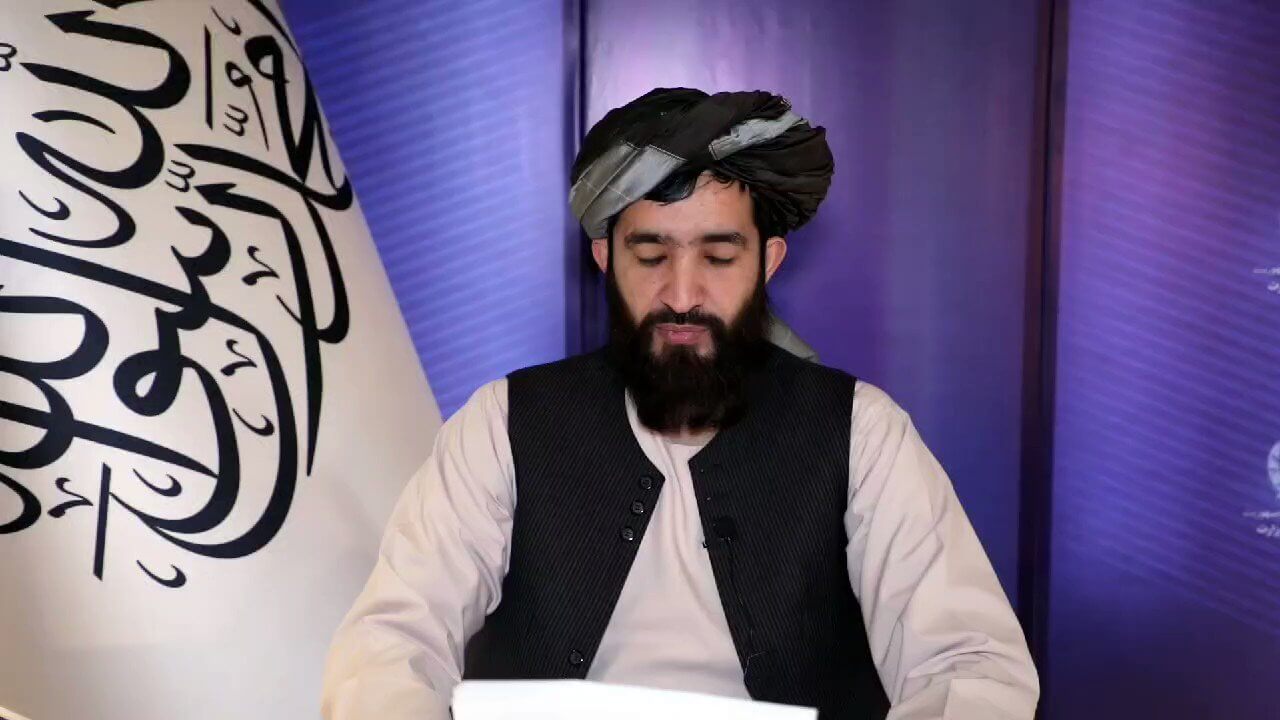The Taliban lauded India’s decision to “upgrade” its diplomatic presence in Afghanistan after New Delhi sent a team of diplomats to Kabul for the first time since the group seized control of the country last August.
The Taliban’s Ministry of Foreign Affairs released a statement on Saturday expressing hope that India’s decision marks a turning point and will result in the “completion of unfinished projects by India and the commencement of new vital projects.” The release also said that the Taliban would ensure the security of the Indian officials and “pay close attention to the immunity of the diplomats and cooperate well in endeavours.”
Foreign ministry spokesperson Abdul Qahar Balkhi told The Indian Express on Sunday that the Taliban administration is “hopeful” that India’s deployment of a diplomatic team will generate forward momentum “from the humanitarian and development aspects.”
In this regard, the Afghan ambassador to India, Farid Mamundzay, said it is important to “forget the past and form new working relations.”
The Islamic Emirate of Afghanistan welcomes India's step to upgrade its diplomatic representation in Kabul. Besides ensuring security, we will pay close attention to the immunity of the diplomats and cooperate well in endeavors. pic.twitter.com/4t1Tm4ahcD
— Abdul Qahar Balkhi (@QaharBalkhi) August 13, 2022
In fact, Balkhi revealed that apart from opening the embassy, India and Afghanistan are looking to resume flights. Furthermore, he noted that trade with India has “doubled.”
In order to maintain this “very positive” momentum, the Taliban has also assured that it will not “interfere in the internal matters of other nations,” referring to India’s Kashmir dispute with Pakistan. In the past, the Taliban has gone back and forth on its position on the India-Pakistan conflict.
Balkhi noted that India has many ‘incomplete’ projects in Afghanistan, such as the Shahtoot Dam in Kabul, and warned against letting them “go to waste.”
Keeping this in mind, Balki said the Taliban is “trying to revive” Chabahar port and the Turkmenistan-Afghanistan-Pakistan-India (TAPI) pipeline project in order to “connect Central Asia to South Asia.”
The Islamic Emirate of Afghanistan welcomes India's step to upgrade its diplomatic representation in Kabul. Besides ensuring security, we will pay close attention to the immunity of the diplomats and cooperate well in endeavors. pic.twitter.com/4t1Tm4ahcD
— Abdul Qahar Balkhi (@QaharBalkhi) August 13, 2022
The Taliban’s remarks come shortly after Indian External Affairs Minister S. Jaishankar announced on Friday that a team of Indian diplomats had been dispatched to the embassy in Afghanistan to address issues such as “humanitarian assistance, medical assistance, vaccines, [and] development projects.”
However, he clarified that the ambassador would not return to Kabul. Reports suggest that a director-level officer is leading the mission from the Indian Foreign Services along with four other officials. A team from the India-Tibet Border Police has been deployed to ensure the security of the embassy and the envoys.
Jaishankar: “What we decided was that we would send the Indian diplomats back to the embassy, not the ambassador, and make sure that they are able to function and able to address a lot of these issues…https://t.co/xtRWt1NIop
— Derek J. Grossman (@DerekJGrossman) August 13, 2022
Addressing the Taliban’s take over in August last year, Jaishankar said that India has taken “a very considered, deliberated view” in light of the “deep” and “historical” relations it shares with both Afghanistan and its people. He thus asserted that New Delhi has found will continue to “find ways of factoring in these political changes and continuing that people-to-people relationship.”
Pointing to previous incidents of India’s commitment to the Afghan community, Jaishankar pointed out that India is a key supplier of vaccines and other essential medical equipment, and has also launched several development projects, including the construction of hospitals and clinics. Estimates suggest that India has invested over $3 billion in Afghanistan over the past 20 years, including in infrastructure projects such as roads, dams, schools, and substations.
Taliban Govt of Afghanistan welcomed India's move of sending Team of Diplomats to Kabul once again after long. EAM @DrSJaishankar had only yesterday stated that India has now sent some of its diplomats back to Kabul but not an Ambassador yet..@suhailshaheen1@ABPNews pic.twitter.com/3K9wP7BrT9
— Ashish Kumar Singh (ABP News) (@AshishSinghLIVE) August 13, 2022
Further, he recalled India’s decision to satiate the “very extreme demand for wheat” in Afghanistan by providing 40,000 tonnes of food grains. He stressed that the delivery of the food grains “was also a very complex diplomatic exercise,” as it required the cooperation of Pakistan, which blocked Indian trucks from passing through Pakistan for months despite several requests from New Delhi.
In this regard, Jaishankar highlighted the importance of the Chabahar port in Iran, which he said remains “still relevant” for sending goods to Afghanistan and avoiding the land route through Pakistan. Hence, he said, “I think Chabahar remains very much a factor and it will remain a logistical hub, which we will use, both for Central Asia and northwards to Russia as also for Afghanistan.”
On this topic, an unnamed Afghan foreign ministry official revealed to Arab News that India wishes to “have its own direct lines of communication to the Afghan government, as well as to counter Pakistani and Chinese influence in Afghanistan.”

